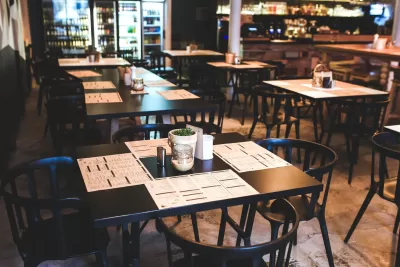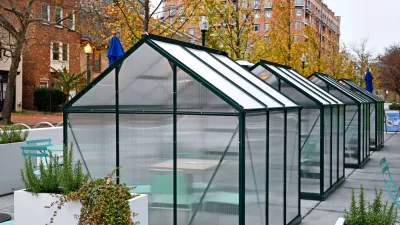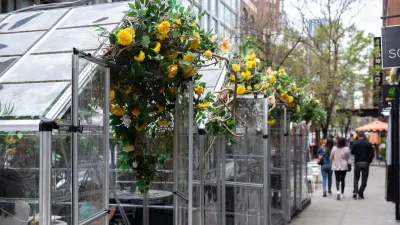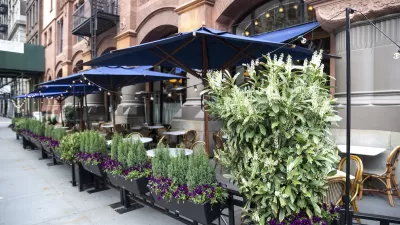High platform fees for food delivery apps have put struggling restaurants between a rock and a hard place.

With many restaurants across the country closing their dining rooms under stay-at-home orders to contain the spread of COVID-19, delivery has been one remaining lifeline for struggling food businesses. But with apps like DoorDash charging huge service fees, restaurants struggle to make a profit in an industry that already operates on razor-thin margins. Some cities have started putting a cap on delivery app fees, which usually start at around 30%. Local ordinances passed in Cleveland, Chicago, Los Angeles, and a handful of other cities have limited the fees to 15-20%. Prior to New York City Council reining in delivery apps in May, restaurants could even be charged for phone calls that didn't result in an order.
The delivery fees are just one part of a disruptive new industry that cities are still trying to regulate. New York City Council Member Mark Gjonaj, who advocates for a permanent fee cap, also wants to see greater transparency and improved worker protections for delivery drivers. The patchwork of emergency regulations passed this year reveal the "tension between the delivery apps and the restaurants that benefit from their services," Camille Squires points out. "The fight to regulate Big Tech delivery apps will continue well beyond the pandemic."
FULL STORY: US cities rein in food delivery apps on behalf of embattled restaurants

Alabama: Trump Terminates Settlements for Black Communities Harmed By Raw Sewage
Trump deemed the landmark civil rights agreement “illegal DEI and environmental justice policy.”

Planetizen Federal Action Tracker
A weekly monitor of how Trump’s orders and actions are impacting planners and planning in America.

The 120 Year Old Tiny Home Villages That Sheltered San Francisco’s Earthquake Refugees
More than a century ago, San Francisco mobilized to house thousands of residents displaced by the 1906 earthquake. Could their strategy offer a model for the present?

Opinion: California’s SB 79 Would Improve Housing Affordability and Transit Access
A proposed bill would legalize transit-oriented development statewide.

Record Temperatures Prompt Push for Environmental Justice Bills
Nevada legislators are proposing laws that would mandate heat mitigation measures to protect residents from the impacts of extreme heat.

Downtown Pittsburgh Set to Gain 1,300 New Housing Units
Pittsburgh’s office buildings, many of which date back to the early 20th century, are prime candidates for conversion to housing.
Urban Design for Planners 1: Software Tools
This six-course series explores essential urban design concepts using open source software and equips planners with the tools they need to participate fully in the urban design process.
Planning for Universal Design
Learn the tools for implementing Universal Design in planning regulations.
Clanton & Associates, Inc.
Jessamine County Fiscal Court
Institute for Housing and Urban Development Studies (IHS)
City of Grandview
Harvard GSD Executive Education
Toledo-Lucas County Plan Commissions
Salt Lake City
NYU Wagner Graduate School of Public Service





























